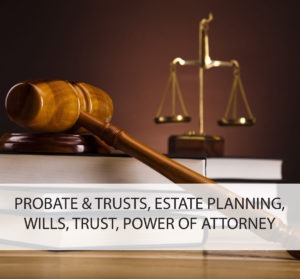Answer these 7 simple questions to find out!
- Have you prepared a Will or Trust?
If you do not have a will, the State of Florida will determine how your assets will pass. This could have potentially undesired results!
- If you have done a Will or Trust when was it last reviewed?
Your estate planning documents should be reviewed on an annual basis to be certain that the representatives, agents, trustees, etc. that you have appointed are still appropriate. You should also review your plan of distribution. If changes have occurred in your family, financial situation, or your desires, then new provisions may be necessary. Also, changes in the law do occur, so plans should be periodically reviewed by an estate planning attorney.
An out-of-date estate plan perhaps is worse than no estate plan at all. Think of estate planning as a process, not an event.
- Does your current plan provide your heirs with asset protection, divorce protection, and lawsuit protection?
Under Florida law, children and grandchildren can inherit property at age 18 without restriction. Proper planning is crucial to prevent an heir from squandering his or her inheritance. Are the distributions to your children protected from their creditors and divorce?
- Do you only have a Will and not a Living Trust?
Many of your assets could be subject to Probate proceedings. Probates are costly and require many months to conclude. A properly funded Living Trust is an excellent way to avoid Probate.
- Should your decision makers be changed?
Over time, many people change their minds about who is best suited to be their personal representatives, trustees, and health decision makers. Or the people designated in the original documents may have moved, died, become ill, or grown distant. You should also consider naming successors to act as back-up.
- Is this your only marriage?
Second or subsequent marriages present unique planning issues, particularly if both have children from a prior marriage. Proper planning is critical to prevent undesired results.
- Do you have assets titled jointly with a child or children, or someone else?
Holding assets jointly with someone else other than a spouse is quite common, but has some potentially devastating consequences of which most people are unaware. In Florida, a creditor of a joint tenant can claim the asset! A creditor would include a divorcing spouse, judgment creditor, or business creditor. Additionally, problems can be created if joint tenants die in the wrong order. There are better ways to allow your children to access your accounts.
Questions? The Law Office of Debra Simms is here to help. Call us today 386.256.4882
This blog post is not case-specific and is provided only for educational purposes and is not intended to provide specific legal advice. Blog topics may or may not be updated and entries may be out-of-date at the time you view them.

 If we spare even a fraction of the time we spent on earning all that money and building those assets, we would be able to ensure that it stays in the right hands even when we are not around to look after them. The federal law provides multiple legal options for you to choose form in order to facilitate a judicious planning of your property and assets. We are here to help you understand the various legal rights of a valid US citizen in managing his property and estate while he/she is alive and also post his/her demise.
If we spare even a fraction of the time we spent on earning all that money and building those assets, we would be able to ensure that it stays in the right hands even when we are not around to look after them. The federal law provides multiple legal options for you to choose form in order to facilitate a judicious planning of your property and assets. We are here to help you understand the various legal rights of a valid US citizen in managing his property and estate while he/she is alive and also post his/her demise.

